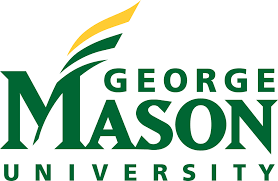George Mason University: New lab gives students access to best practices for writing, communication
The Lab for Writing and Communication, like many other great creations, is the result of a group of dedicated people asking the question ‘what if?’
“That was the beginning of our vision,” said Susan Lawrence, director of the Writing Center and associate professor at George Mason University. “What if the Writing Center and the Comm Center were in one place?” she asked with Melissa Broeckelman-Post, professor and basic course director of the Communication Department.
“Very soon thereafter, Heidi [Lawrence] came along and said ‘what if we build a research engine into this?’”
The lab, on the second floor of the Johnson Center, hosted a grand opening on Nov. 2.
“The primary function of what happens here is the writing consultation and the communication consultations for the students,” said Heidi Lawrence, associate professor of English. “It’s a space for them to bring projects, questions, future goals and aspirations and for them to workshop those pieces with consultants.
The Communication Center primarily focuses on helping students with speeches and oral presentations and the Writing Center focuses on written projects.
“The ultimate goal as we grow is to serve every student in the university,” said Communication Center consultant Sarah Strunk, a senior in film and video studies.
“Sharing our space makes things more active because we’re all together,” said Alice Christensen, a junior anthropology major and Writing Center consultant.
“I can talk to a communication consultant and get some strategies that I wouldn’t be able to get from another writing center consultant, because that’s not part of our bubble, but I can learn from them and they can learn from us,” Christensen said.
Susan Lawrence and Shelby Broberg work together to help the center run and to help students, whether they’re working on written or oral communication goals, said Strunk.
Broberg, director of the Communication Center, joined the program in May.
“It just makes sense to have the Writing Center and Comm Center together because the things that we do work well together,” said Broberg. “There are times when we refer people to them in the middle of a session or they refer their clients to the Comm Center.”
Clients of the Lab for Writing and Communication get 30- to 45-minute consultations. Walk-ins are also accepted if a consultant is free at the time.
All consultants have standard university trainings as well as professional development throughout the year focusing on an array of topics, such as balancing the student communicators’ individual goals and learning preferences with best practice to shape a session that works well for the student, said Christensen.
“We talk through specific scenarios to get them thinking about how to work with different types of students,” said Ivan Moore, the Lab’s accessibility specialist, who assists in consultant education.
“The big thing we want to focus on when we’re consulting is transfer of knowledge,” said Christensen. “I want this student to leave better equipped to help themselves, so they don’t have to keep coming back to me for help.”
“When students talk to a knowledgeable peer about their writing project, the disciplinary learning—the learning about the subject matter—gets deeper,” Susan Lawrence remarked. “It’s about the writing, but it’s not only about the writing. In consultations, students explore and scrutinize their ideas more fully, and I wish more people knew that.”
In addition to housing consultations with student communicators, the lab is a site for research. Heidi Lawrence noted that “We want to make research opportunities available to our student consultants, and we want to apply the knowledge we’re building here with community partners, and to bring that expertise from the community back into the lab.”
“We want to help students empower themselves through their own language use,” said Susan Lawrence. “That is what we’re about.”
To book an appointment, use the online scheduler to login or register, and gain access to the calendar to see which consultants are available at certain times. Meeting options include in-person, Zoom sessions, or written feedback. Clients have access to consultant bios in order to see who might be the best fit for their academic needs.

